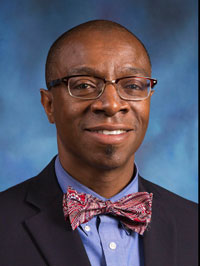George Liele (c. 1750-1825) pioneered Baptist missions under the dark cloud of colonial slavery. Familial separation and instability characterized this period of early American history for most indentured servants and enslaved Africans.

Curtis Woods
Liele did not know his parents, even though some black and white persons described his father as “know(ing) the Lord in a spiritual way.” Unfortunately, his father’s conversion to Christianity had little bearing on his ability to raise his son.
In 1764, Liele moved from Virginia to St. George’s Parish near Queensborough with his owner Henry Sharp. At that time, his name was changed to George Sharp.
Liele converted to Christianity under Matthew Moore’s preaching when the Holy Spirit revealed the gospel of grace through repentance and faith in Christ. Ironically, Moore’s message spoke of spiritual freedom in the afterlife without the offer of emancipation in this life. Nevertheless, God did not allow this theological contradiction to hinder the liberating message of the gospel. Liele recounts his conversion experience saying:
“(T)he Rev. Mr. Matthew Moore, one Sabbath afternoon, as I stood with curiosity to hear him, he unfolded all my dark views, opened my best behavior and good works to me, which I thought I was to be saved by, and I was convinced that I was not in the way to heaven, but in the way to hell. This state I labored under for the space of five or six months.
“The more I heard or read, the more I saw that I was condemned as a sinner before God; till at length I was brought to perceive that my life hung by a slender thread, and if it was the will of God to cut me off at that time, I was sure I should be found in hell, as sure as God was in heaven.
“I saw my condemnation in my own heart, and I found no way wherein I could escape the damnation of hell, only through the merits of my dying Lord and Saviour Jesus Christ; which caused me to make intercession with Christ, for the salvation of my poor immortal soul; and I full well recollect, I requested of my Lord and Master to give me a work, I did not care how mean it was, only to try and see how good I would do it … I felt such love and joy as my tongue was not able to express.

“After this I declared before the congregation of believers the work which God had done for my soul, and the same minister, the Rev. Matthew Moore, baptized me, and I continued in this church about four years, till the (e)vacuation (of Savannah by the British).”
Liele’s conversion story was clear. He acknowledged the sovereignty, love and justice of God. He was afraid for his immortal soul because the Spirit revealed the reality of hell. He turned from his sins and asked the Lord to save him from the dreaded fate of eternal separation from God. He rested in the loving arms of Jesus Christ.
In God’s good providence, Liele’s conversion paved the way for many enslaved persons to hear the liberating message of the gospel from a person who understood their pain firsthand. Liele preached on plantations in South Carolina and Georgia to segregated and mixed audiences.
One of Liele’s first converts was David George. In 1778, Liele and George planted the First Colored Baptist Church in Yamacraw, South Carolina, before Liele supported the British in the Revolutionary War, leading to his emancipation from colonial tyranny.
Later, in 1779, the cohort founded the First African Baptist Church in Savannah, Georgia. Liele discipled George to think globally as a Christian who eventually planted churches in Nova Scotia and Sierra Leone.
Liele experienced constant suspicion, ridicule and terroristic threats on account of his race and Loyalist political persuasion. Liele fled to Jamaica with his wife and four children to protect them from re-enslavement by Henry Sharp’s children.
One of the most unsettling realities of colonial American history is how some argued for personal freedom while simultaneously enslaving others to maintain business ventures. Liele was not immune to this sickness. He enslaved African people in Jamaica — even though it seems he was a benevolent master.
Liele gave his ministerial offerings to and empowered enslaved persons to fight for righteousness. The latter landed him in prison for over three years; which, in some sense, highlights the complexity of fully understanding how the slave economy operated.
By God’s grace, Liele, according to Gerald H. Anderson, “preached, baptized hundreds and organized them into congregations governed by a church covenant he adapted to the Jamaican context … his efforts had produced, either directly or indirectly, some 8,000 Baptists in Jamaica.” No matter how bad the beginning the gospel will create beauty out of the ashes.
Curtis Woods is associate executive director of the Kentucky Baptist Convention.
Curtis Woods